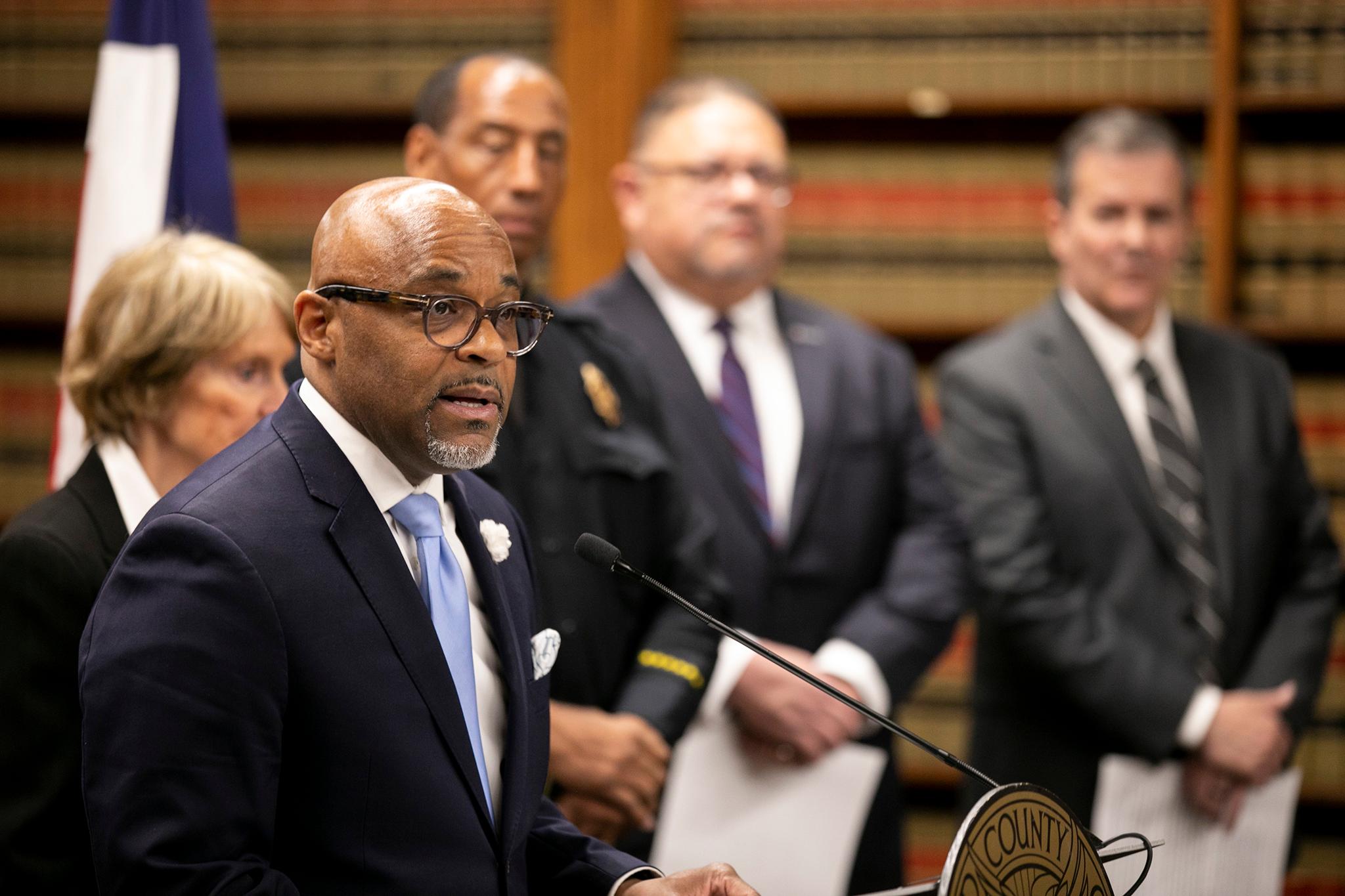Mayor Michael Hancock's administration has faced a spike in crime during his last term. On Tuesday morning, he and members of his administration and other agencies gathered to report on their efforts to make the city safer.
The numbers the administration presented as evidence show that while progress has been made downtown, crime overall is up across the city.
Auto theft reports have dropped 27% since 2022. In the Central Business District, violent crime is down 15% and property crime has dropped 35%.
Between Jan. 1 and April 15, 600 illegal guns have been taken off the streets. In part, that's because of a collaboration between the City of Denver, the U.S. Attorney's Office and the Downtown Denver Partnership, which was announced in November.
"Thanks in part to this multi-agency partner effort, we're seeing a welcome decrease in certain crime rates across Denver, and it's my hope that we can keep these numbers trending downward," Hancock said.
But citywide, crime isn't trending downward.
"By no means -- and I want to make this very clear -- are we satisfied," Hancock said. "We still have a lot of work to do, and a long way to go."
The numbers Hancock didn't announce that compare 2023 to a three-year average, found on the public-facing Denver Police Department crime dashboard, do a better job of explaining why the administration is dissatisfied.
Violent crime is up almost 11%, with murders up 11.54% and aggravated assault up 17.24%. The only violent-crime category to drop is sexual assault, with a 9.49% decrease.
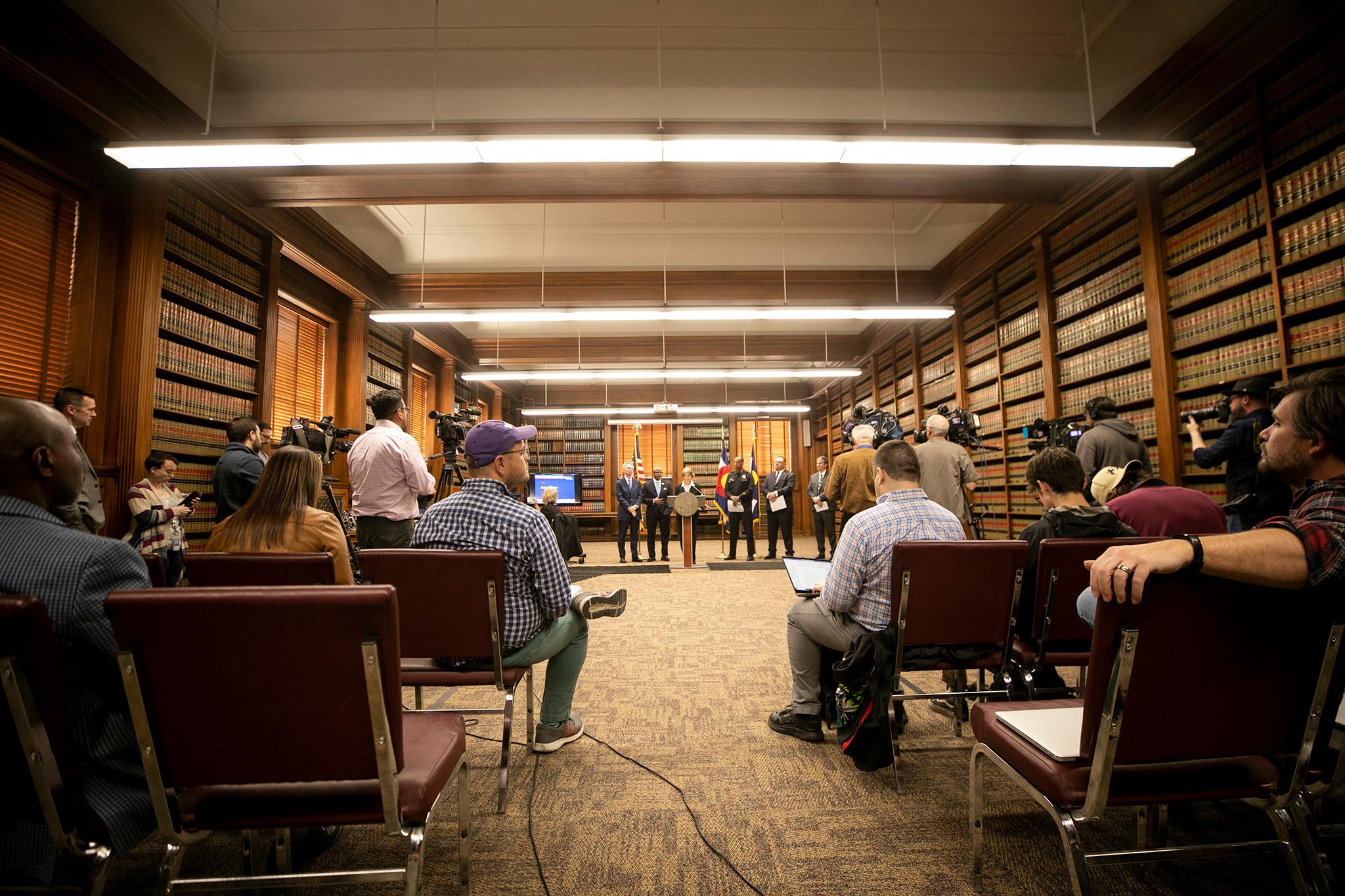
Property crimes are up 2.76%, with auto theft up 6.4%. Happily, arson has dropped 21.74%.
Other crimes, including public disorder, drug and alcohol crimes, are up just over 16%, with drug and alcohol crimes up a whopping 31.53%. White-collar crime has fallen 15.5%.
In total, crime is up 8.37%.
The City of Denver has a buffet of solutions for reducing crime.
Those include targeting gun crimes to offering treatment, mental health and housing navigation services to low-level criminals without homes.
Housing is a critical issue when it comes to crime reduction. In fact, roughly 80% of people in Denver cycling in and out of jail over the past five years are experiencing homelessness, according to District Attorney Beth McCann.
"So it's clearly a contributor to the issues of crime, mostly low-level crime, and drug addiction," she added.
U.S. Attorney Cole Finegan, McCann, Denver Police Chief Ron Thomas, head of the Department of Public Safety Armando Saldate and Denver Department of Public Health and Environment head Bob McDonald joined the mayor.
Finegan discussed the federal crackdown on gun crime and the four federal prosecutors hired to solve such crimes in Denver. They have secured 25 indictments, from bank robberies to carjackings to illegal possession and distribution of firearms.
"We're pleased with the success we're having," Finegan said.
Denver District Attorney Beth McCann said her biggest concerns were juveniles with guns, fentanyl use and car thefts. Those issues, she explained, are intertwined.

"We are finding more juveniles involved in violent crime over the last several years," she said. "We are taking a hard line on these cases -- particularly if the juveniles have been in the system, have a record, and have been given opportunities in our juvenile system to get treatment and to get assistance."
The District Attorney's office has also launched the Handgun Intervention Program (HIP). The program connects kids arrested with unused guns to mentors, professional training and other support.
Fentanyl cases filed by the DA have doubled every year since 2018. McCann fears the animal tranquilizer Tranq will be the next deadly drug to plague Denver.
"We will continue to prosecute aggressively dealers and distributors, while supporting treatment courts and harm reduction efforts for those who are addicted," McCann said. She's also launched a public education program, since many young people don't seem to know that the little blue pills that look like Oxycodone are likely laced with fentanyl. The DA's office also supports the distribution of opioid overdose reversal drugs like Narcan and fentanyl testing strips.
McCann has also focused on prosecuting car thieves -- particularly organized rings. She noted that with or without prosecution, the car recovery rate is roughly 90%.
Thomas spoke about DPD's efforts to improve stolen-car recovery through Denver Track, a program in which drivers authorize police to track their vehicles through GPS in the case of theft. DPD is also handing out steering wheel lock clubs and other antitheft devices.
DPD has made strides filling vacant positions, officials said. Police recruiting is up, with more than 60 officers graduating from the police academy by June 1, and a full 50-person class starting later this year.
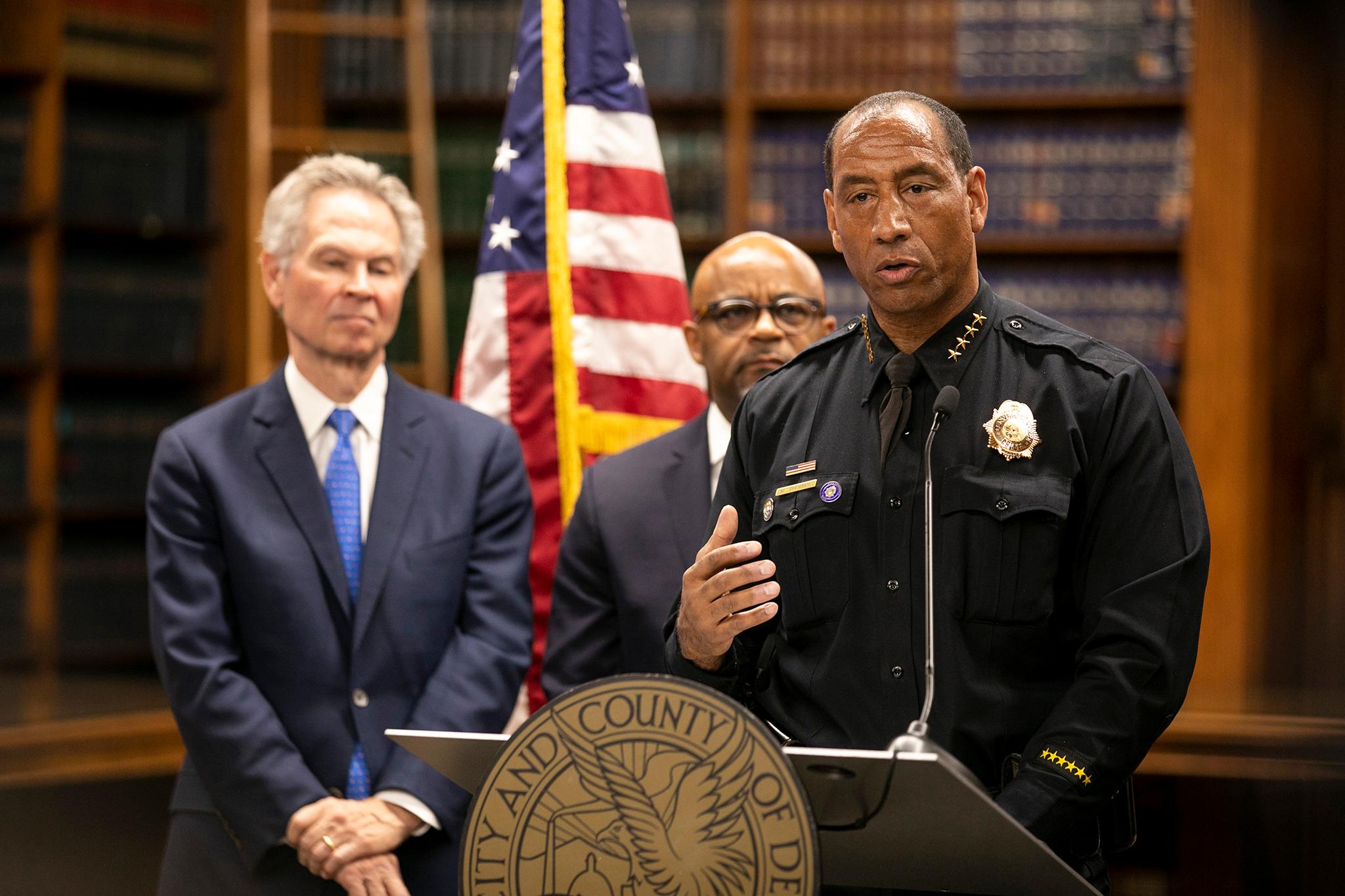
The Department has also launched public-facing dashboards to be transparent about officer-involved shootings, internal affairs cases, police response times and other crime trends.
That information allows the public to hold police accountable, Thomas said.
Saldate discussed the city's new Assistance, Intake and Diversion (AID) Center, which has helped 270 people. Police are taking low-level offenders who would otherwise spend a night in jail to the AID Center. At the center, they connect with health care providers, vital records experts, help with expunging criminal records, job training and sober living facilities.
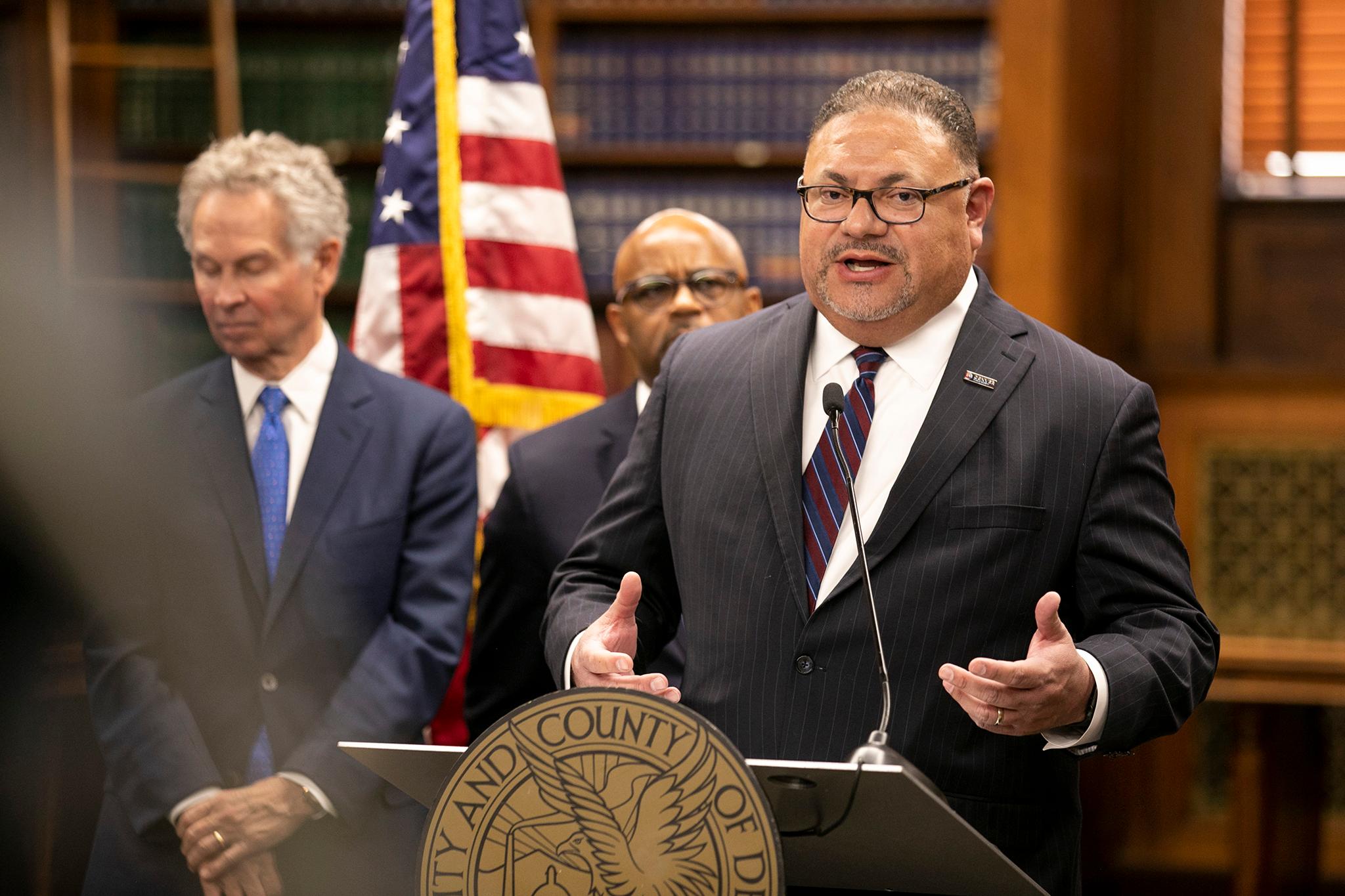
"We've also started a new housing navigation group to identify and address challenges that can lead individuals to sustainable housing options," Saldate said. "We know housing is critical shelter is critical for our population. And we also know it's very difficult to obtain here in Denver. So we are working as a collaborative group with community partners to try to guide people to that."
McDonald described a mental health and addiction crisis that has hit Denver and most other cities since the pandemic. He discussed the success and expansion of the Support Team Assisted Response (STAR) Program, that has served over 8,000 residents since 2020, and the Wellness Winnie fleet, mobile clinics driven to places where unhoused people live. Three new units -- called Mini Winnies -- are hitting the roads this week.
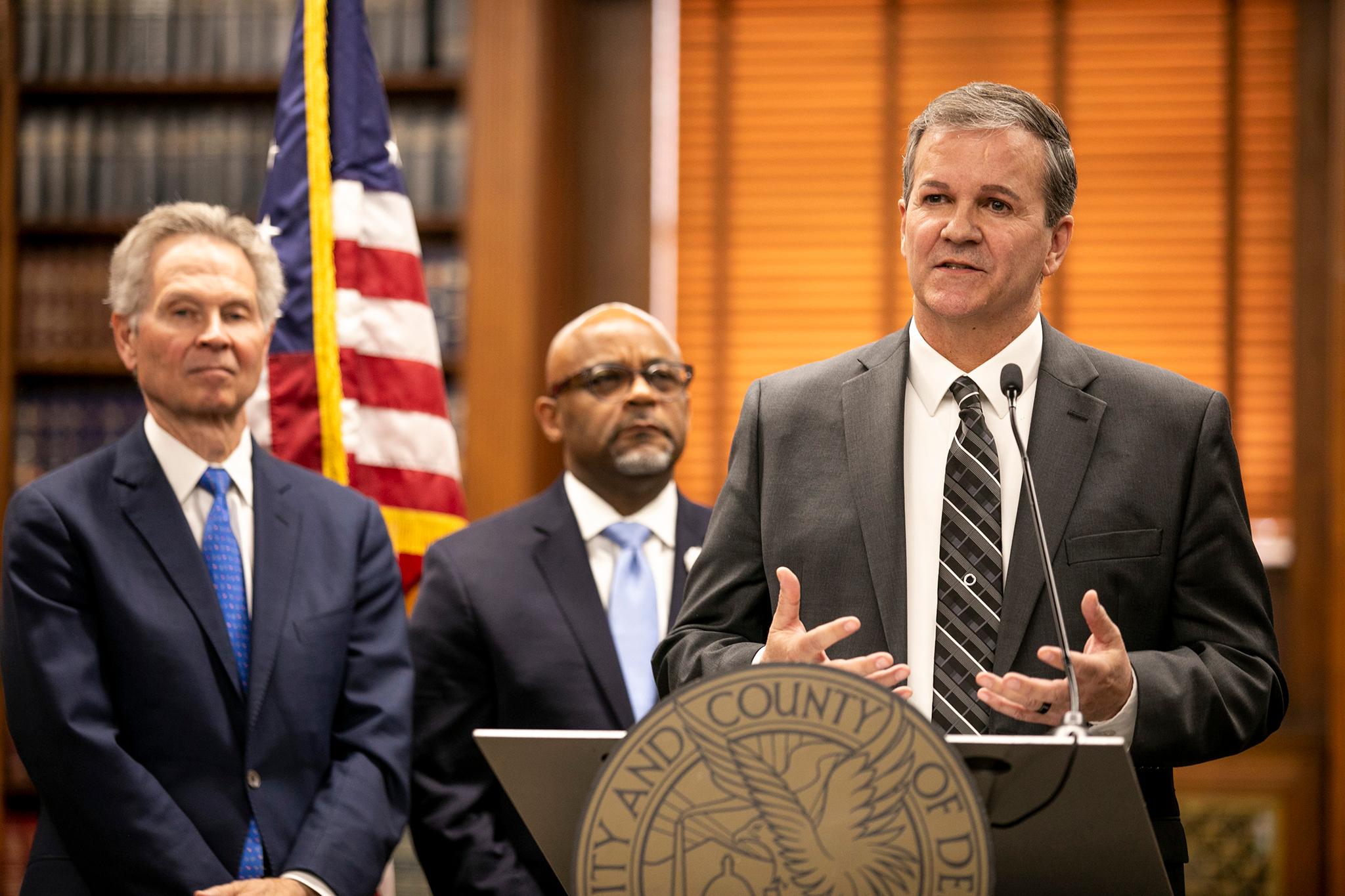
The Department of Public Safety is also working with a University of Denver professor on a multi-agency study about the connections between homelessness, crime, mental health issues and addiction.
The goal of the study, Saldate explained, is to answer: "Why are people that are experiencing homelessness or having mental health conditions more apt to be in jail on lower-level offenses?"
Hancock said that's an expensive cycle as "Many of these individuals cycle in and out of our jails and in our emergency rooms."
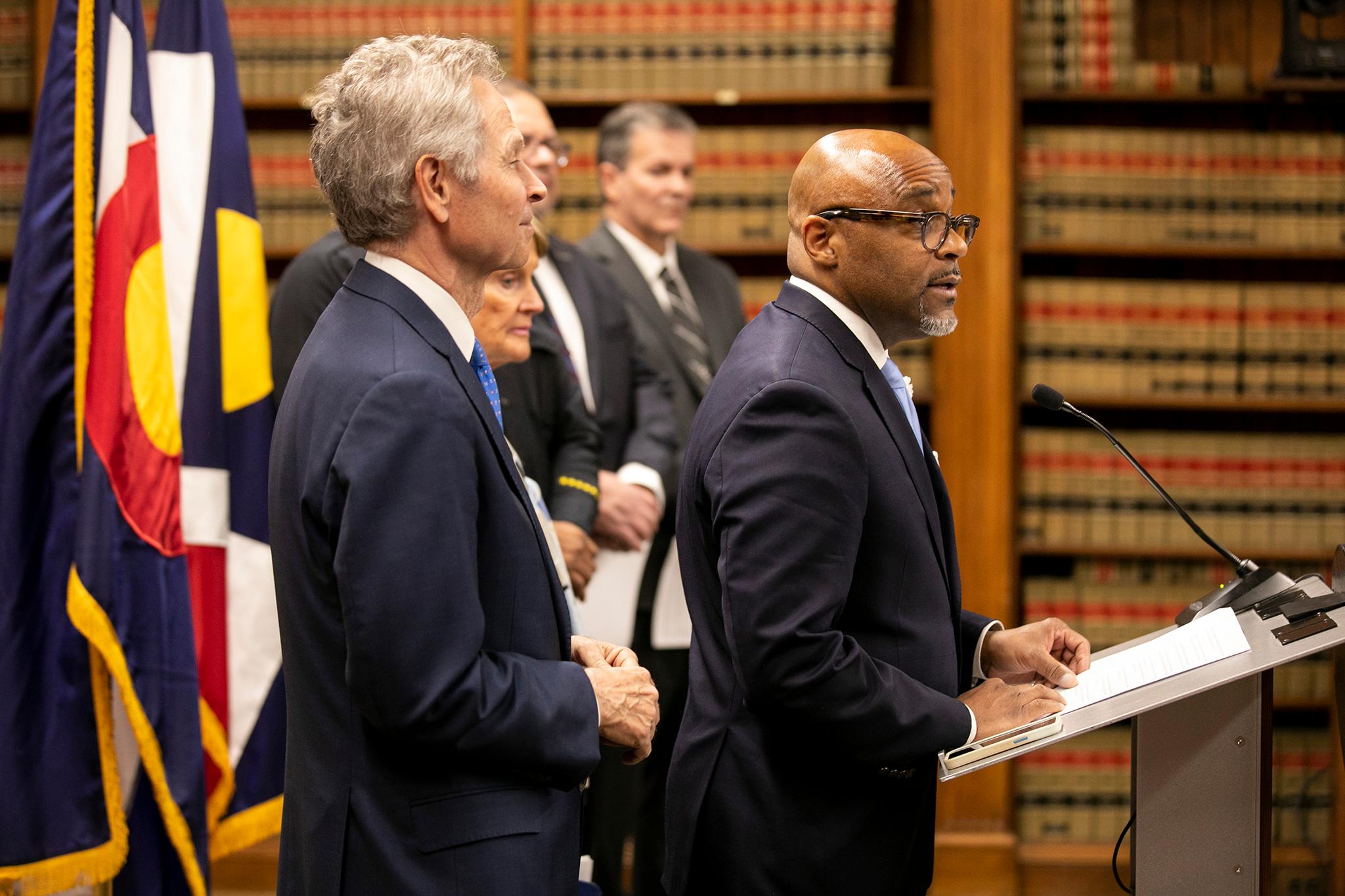
At the conference, Hancock praised the Denver Public Schools and DPD for bringing school resource officers back to the high schools and said he hoped the school district would continue that practice.
The comment came as Denver Public Schools debates a districtwide safety plan Superintended Alex Marrero is drafting in the wake of several high-profile gun violence incidents at East High School.
"We don't believe this is a panacea," Hancock said, before explaining that the city and schools weren't just taking a law-enforcement approach to a rise in school shootings. The administration noted it also addressed students' mental health struggles and overall hopelessness.
Hancock described meeting with the city's Youth Commission every year as mayor. Six years into his time in office, he said, young people began to describe an increased need for mental health support.
"There is a significant lack of hope in some of our young people," Thomas said. "So I think as a community, certainly as a city, we need to do more to address the concept of hope and making sure that individuals, young people in schools, can really see a vision for a successful future."

